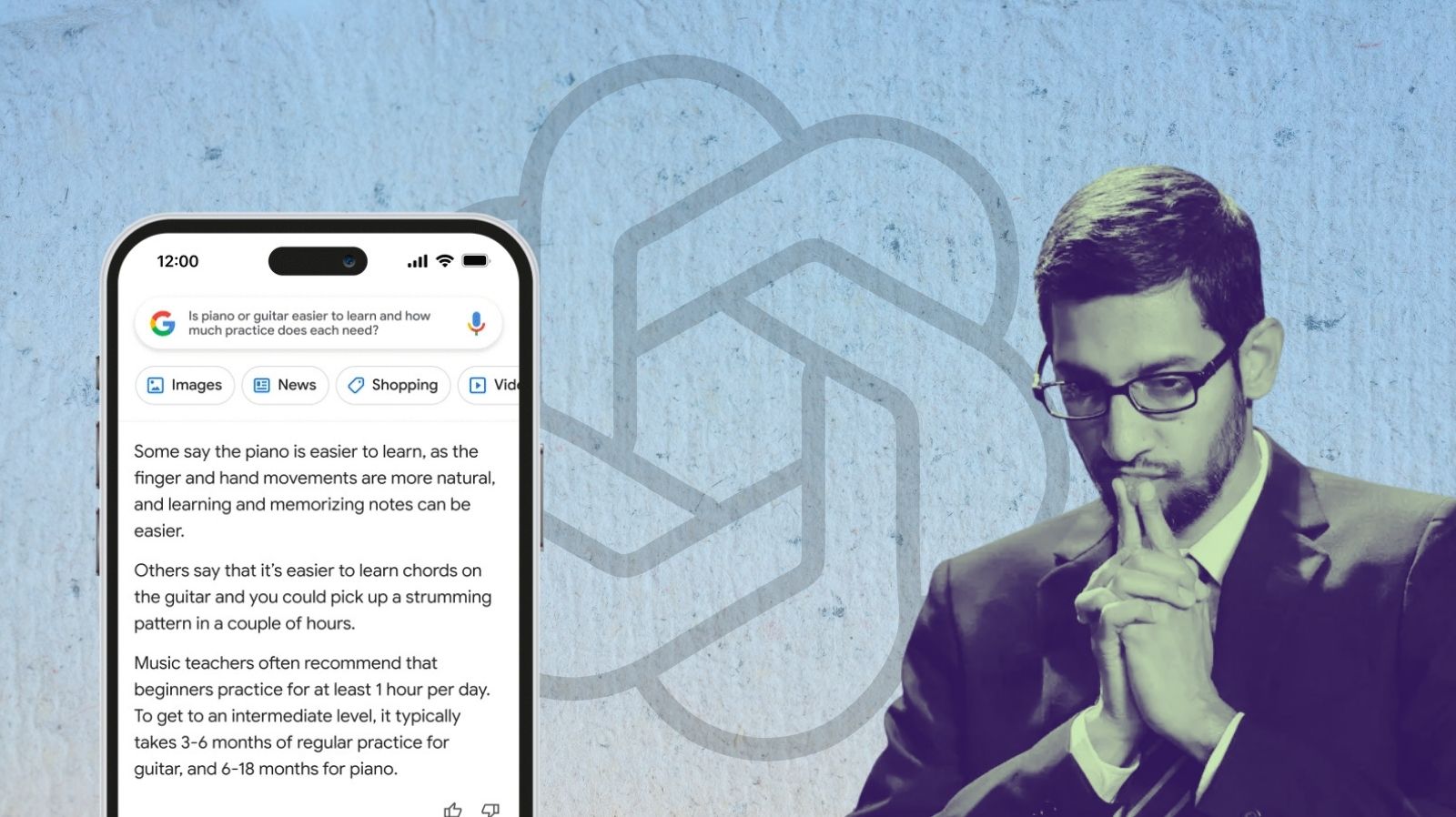- Item 1
- Item 2
- Item 3
- Item 4
Controversy at Google: AI Chatbot Bard Accused of Using OpenAI's ChatGPT Data
Google's AI team faces scrutiny over allegations that their chatbot Bard was trained using data from OpenAI's ChatGPT, sparking internal dispute and the resignation of a senior engineer.

Google is under fire as inside sources reveal its chatbot, Bard, was trained on ChatGPT's outputs. Photo credit: Google / Reuters
🧠 Stay Ahead of the Curve
Google's AI team purportedly employed OpenAI's ChatGPT data in their Bard chatbot's training, resulting in internal disputes and the departure of a senior engineer.
Google's recent endeavors underscore the intense pressure from their "code red" scenario as they strive to match OpenAI's capabilities.
The prevailing arms race propelling tech companies to rapidly create AI solutions provides limited space for addressing responsible and ethical development concerns raised by critics.

March 30, 2023
Google's AI team, responsible for the development of Bard, the company's AI chatbot, has come under fire amid allegations that they may have used data from OpenAI's ChatGPT during the chatbot's training, as reported by The Information.
The decision sparked controversy within Google's product team, prompting senior AI engineer Jacob Devlin to resign in January and then join OpenAI. Before resigning, Devlin voiced concerns to the company's top executives, including CEO Sundar Pichai. Devlin notably contributed to a groundbreaking paper on training machine-learning models to enhance their understanding of sentence clusters—an innovation that OpenAI has integrated into its language models.
Sources within Google claim that Bard's training involved data from OpenAI's ChatGPT, specifically logged conversations from ShareGPT, a public platform where users can post transcripts of their ChatGPT interactions. Several Google employees reportedly flagged that this approach would have contravened OpenAI's terms of service, which expressly forbid using ChatGPT's outputs to develop models that rival OpenAI. The Information's findings also suggest that Google employees were apprehensive that Bard's answers would too closely resemble ChatGPT's responses due to the contentious training.
Ultimately, Google ceased using ChatGPT data to train Bard, according to The Information. Bard was later released in preview access, garnering lukewarm reviews from AI researchers and technology journalists. The New York Times characterized Bard's capabilities as "less detailed," "odd," and "minimalist" in comparison to ChatGPT, which recently began using OpenAI’s GPT-4 large language model (LLM).
In response to ChatGPT's launch, Google has implemented a "code red," acknowledging that they are trailing behind in AI capabilities. The Information reports that the pressure to make rapid advancements in generative AI has become so intense that, for the first time, rival Google teams—Deepmind and Google Brain—have joined forces to create a chatbot that can compete with OpenAI's GPT-4.
Research
In Largest-Ever Turing Test, 1.5 Million Humans Guess Little Better Than ChanceJune 09, 2023
News
Leaked Google Memo Claiming “We Have No Moat, and Neither Does OpenAI” Shakes the AI WorldMay 05, 2023
Research
GPT AI Enables Scientists to Passively Decode Thoughts in Groundbreaking StudyMay 01, 2023
Research
GPT-4 Outperforms Elite Crowdworkers, Saving Researchers $500,000 and 20,000 hoursApril 11, 2023
Research
Generative Agents: Stanford's Groundbreaking AI Study Simulates Authentic Human BehaviorApril 10, 2023
Culture
As Online Users Increasingly Jailbreak ChatGPT in Creative Ways, Risks Abound for OpenAIMarch 27, 2023
